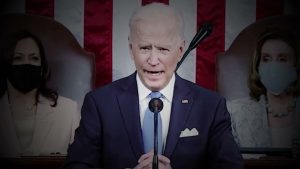Debate Fallout: ‘Almost Impossible to Replace Biden.’

There were no immediate signs of coordinated efforts among donors, campaign leadership, or the Democratic National Committee to urge the president to step aside, according to interviews with several people who spoke on condition of anonymity to share sensitive discussions.
However, morale was low among some Biden campaign staffers nationwide, who had been encouraged by top officials in Delaware to organize hundreds of debate watch parties to maximize viewership of the Biden-Trump showdown. The next morning, some embarrassed lower-level staffers privately expressed a desire for Biden to withdraw from the race.
Similarly, some top Democratic donors in New York, Southern California, and Silicon Valley discussed the need to consider a Biden replacement during a series of text chains and private conversations. There were informal talks between donors and those close to potential Biden alternatives to gauge their willingness to enter the race. But there was no indication that a sitting governor or member of Congress would risk the political fallout of a public break from the Democratic president.
Joe Biden’s inconsistent debate performance immediately raised new questions from concerned Democrats about whether he would exit the presidential race.
This would be a challenging process since Biden is already the Democrats’ presumptive nominee and the overwhelming choice of primary voters. He faced little opposition during the primary season, and the fact that he secured nearly all of the party’s delegates makes it very unlikely he’d be forced out against his will.
“This isn’t the ’60s. Voters choose the nominee. He is the nominee,” said CNN analyst and Democratic strategist David Axelrod, reacting to Biden’s debate performance Thursday night on CNN.
The current primary system, which empowers primary voters over party leaders, emerged from discontent after Democrats selected Vice President Hubert Humphrey as their nominee in 1968. Even after President Lyndon Johnson withdrew from the race that year, recognizing his waning popularity and opposition to the Vietnam War, Humphrey represented a continuation of Johnson’s Vietnam policy at the Democratic National Convention in Chicago. Violence erupted when protesters clashed with police as Humphrey accepted the nomination.
Things would be very different in 2024 if Biden decided to leave the race, although the Democrats’ convention will return to Chicago in August.
Who would replace Joe Biden if he were to drop out? Vice President Kamala Harris would likely be a top contender, but other potential candidates might argue they could run a more effective campaign against former President Donald Trump.
Would someone like California Gov. Gavin Newsom – who offered unqualified support for Biden following Thursday’s debate – challenge Harris at the convention? Choosing a replacement could be divisive and contentious. Delegates would decide, in a series of votes after frantic lobbying, who to select.
Michigan Gov. Gretchen Whitmer, a Democrat frequently mentioned as a 2028 contender and speculated about as a potential replacement for Biden should he step aside, released a statement backing him on Friday.
Among Democrats, there is also the “superdelegates,” a group of about 700 senior party leaders and elected officials who are automatically delegates to the convention based on their position. Under normal party rules, they can’t vote on the first ballot if it could swing the nomination, but they’re free to vote on subsequent ballots.
Under current Democratic Party rules, it would be difficult, if not impossible, to replace Biden as the party’s nominee without his cooperation or without party officials willing to rewrite the rules at the August national convention.



